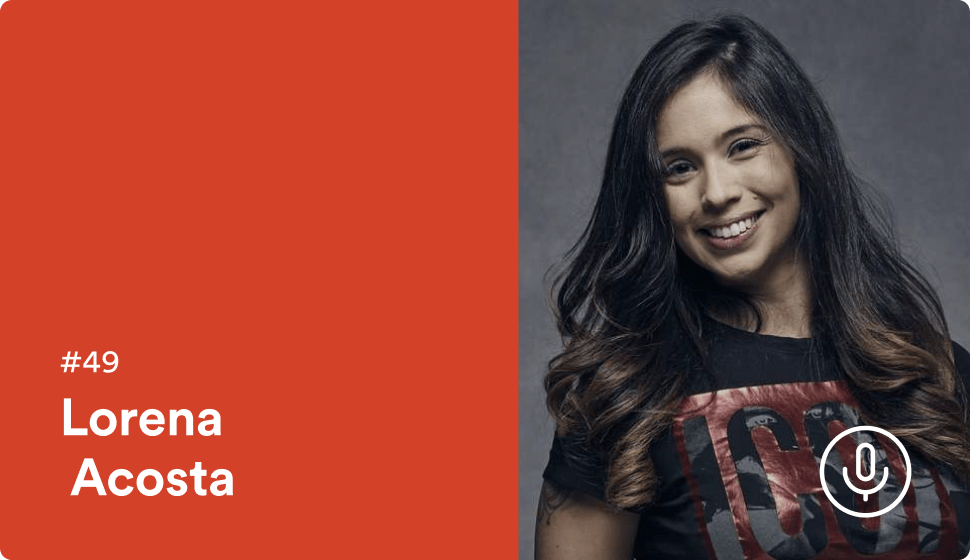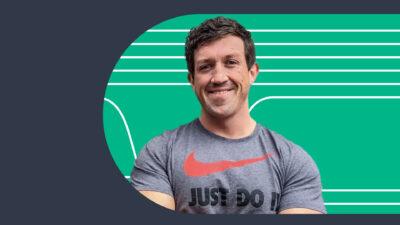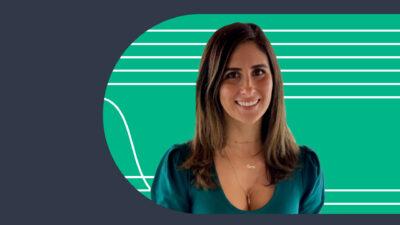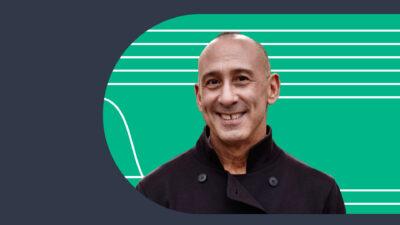The week we talk to Loreana Acosta, a fitness business consultant who helps fitness businesses grow and become successful in the Middle East.
In this episode Loreana explains the playbook for launching a gym or studio in the Middle East, the key mistakes to avoid when starting out, and lays out the unique challenges and opportunities presented in the region.
For more information on this topic connect with Loreana on Instagram and Linkedin.
Episode Link
Transcript
Kevin: How is it going everyone? Welcome to the Fitness Founders Podcast. I’m Kevin Mannion, VP Marketing here at Glofox. This week we talk to Loreana Acosta, a fitness business consultant who helps fitness businesses grow and become successful in the middle east. In this episode, Loreana explains the playbook for launching a gym or studio in the middle east, the key mistakes to avoid in starting out, and lays out the unique challenges and opportunities present in the region. Let’s get started.
Hey, Loreana Acosta, welcome to the show.
Loreana: Thank you so much for having me here today.
Kevin: Tell us where are you dialed in from today.
Loreana: Well, today I’m sitting in beautiful Dubai although I’m based in Montenegro in East Europe. Yes, I’m around these days here in the region.
Kevin: Awesome. The topic for today is launching fitness business in the Middle East. I think let’s kick off with your own background because I think you’ve got a very interesting background, so tell us a little bit about that.
Loreana: Right. Well, I’m Costa Rican first of all. I worked in corporate for about 6 years with Citibank at [unclear]. I feel that Citibank back then was like my university. I learned there everything about leadership. I learned everything about managing teams. I learned everything about how to be organized, how to do project management. It was an incredible experience. However, I felt that I was missing something, you know, to spend a lot of time in the office and the month end close that they were pretty tough back then. And so I decided that I wanted to do something different.
I started in training myself in a strength facility. It was funny because the owner just walked towards me and said, “You know that you are very strong, naturally very, very strong.” I was like, “I have no idea.” So he said, “What about just start competing in powerlifting?” I said, “What!? I’m that strong?” He said, “Yeah! You have all the skills, all the features to compete in this sport.” So I started training to be a powerlifter. I fall in love with feeling strong, getting better every day, and during the last two years that I worked for the bank I started my uni to get certified as a strength and conditioning coach. Also, I did different certifications in the States, in Mexico, then I feel ready, “Okay, this is what I’m going to do. I just want to jump in the fitness world.”
I quit the bank and then I started first of all as a crossfit coach actually. Of course, I wasn’t making enough money back then, and a friend of mine connecting me with a company based here in the Middle East. They brought me because here we always have, we are looking for female coaches, and the reason being because in the region the ladies they cannot be seen by men uncovered. The facilities are completely covered. All the teams are females, well, is a very particular way how we run things over here. So it was a demand, a high demand for female coaches. It still. So if you are listening and you need a job and you have the skills and the experience, and you want to come over the Middle East, I can tell you a lot it’s nowhere you think it is. It is an amazing experience so just give us a shout.
Kevin: Good one.
Loreana: It was a small commercial. So, yes, my friend connected me with this company and I said I have nothing to lose so I sold everything, jumped on a plane, and six years ago I came here to the U.A.E. At the beginning I was working in Abu Dhabi, and then after few months I moved to Dubai. First of all, what I was doing was running a personal training services in the houses of the ladies. It was like a mobile PT kind of service and I really enjoyed it back then.
The thing is, one day, I had a conversation with the owner of this company and I was like, “Listen, I feel that there is a lot of improvement that we can do to serve our clients better, to have better relationships inside the team with the other coaches. A lot of improvements.” So he looks at me like, who are you… Like, who are you to come to me and tell me that I have to do changes in the company. So I explained to him, “Well, I actually worked in corporate for quite a long time so that’s quite for me is easy to analyze process and systems and find a gap where we can do things better.” Then he said, “Okay. What about you start working with me running projects or developing different projects in the region.” I just said, “I’m up for it, like, why not”, and we started working together. It was an incredible experience until now.
Well, this year, I just decided to get my own journey with few different ideas a little bit more of online based service to make it easier and simple for the people in the region. Well, that’s how Fitvisory Lab which is the name of my company born this year.
Kevin: Interesting and very varied and exciting journey there. Tell us, I think most people who are not from the region will be interested in what do you see as the opportunities that exist within the Middle East for new fitness businesses.
Loreana: Well, yes, it is a different market definitely. I guess the first thing that everybody needs to understand when you open a new concept in this region is that it’s very different to the States, it is very different to the UK, or even to Australia. Because sometimes they see a new concept in Europe and they say, “Oh, it is going to be a great idea to bring it to Middle East”, and doesn’t work exactly in the same way because people are not just ready to receive it. So people need to do a market research. They need to talk to people.
The second of all thing is they don’t keep in mind in their initial budgeting stuff like to work here in any of the GCC countries you need a VISA. Any expat who comes here is not like when you hire someone in the UK, or hire someone in the U.S., or for instance you don’t need to have people in your payroll if you don’t want to. You can have freelancers. Here the system is very different, you need to have this to provide VISA, you need to provide insurance, alongside other benefits that are part of the package that each of the counties provide. Each country is slightly different, right. So they don’t have the provision of how much is the cost of the business, how much people they have to hire to run successfully their studios or gyms. Also the fact, sometimes you have to even pay for people to come here. You don’t have those considerations in the budget so that’s why sometimes people, projects don’t go alive in the right way. Also, they don’t keep some funds like to survive around 3-6 months if something happens.
I know that a lot of projects where about to start just when COVID kickoff this year. Of course, that was a disaster for everyone, right. So all these provisions needs to be there from the beginning.
Kevin: Makes sense. Now, I think one thing people associate with the Middle East that there are a lot of potential investors or people with money that are looking to. They are the reason best in capital there for fitness businesses. Is that true? Is it hard to find people to say to start a business with you or buy a franchise or be an investor? Is that something that is hard or easy?
Loreana: My answer will be just a no. The perception of the region is that everybody has tons of money to throw away, let’s do a party. It’s not like that anymore. The region is now more conservative. These people have money not because… Well, yes, some of them they are royal family. They have other businesses, resources, whatever. Of course, they take care of their capital. So for them to invest in a project, you need to justify to myself how I’m going to get my money back. If there is not a plan in place I’m not going to even listen to you. And that’s the reality I guess in any country.
So basically, yes, there is a lot of people very passionate about fitness and even though these investors they are not in the field. Normally, they are in the field of construction, they are in the field of food and beverage, and then want into something new so they say, “Why not. Let’s try it.” But, you need a business plan. You need a business plan. You need to justify your idea and you need to be very clear with the details. And when we are talking money, literally show to them you can make that money back. Otherwise, there is no chance someone is going to support your idea.
Kevin: Got it. So not so much easy money just flow…
Loreana: Not anymore. Even in terms of salaries because the perception is, “Oh yes, I go to Middle East. I’m going to make a lot of money. People is going to pay me a lot to be a coach. I’m going to be a VIP coach.” It’s not that true anymore. Here everybody is more conservative with what they give to people because in the past people took a lot of advantage. That’s the truth. Like, they were highly paid and they weren’t delivering. They were very spoiled. Because of all that bad experiences in that past people are now very, very conservative of how they manage things over here.
Another advantage for sure is there are no taxes. There are no taxes in the region. Now, Dubai and Saudi Arabia they implement 5% VAT. Hopefully it is not going to increase in the next years or not yet. But in Kuwait, for instance, doesn’t have any sort of taxes and they have the most powerful currency in the world. So when you think about it and you say, “Well, I can… I can have a different lifestyle.” And also everybody said, “Oh, Dubai is so expensive.” I’m very honest. Right now after COVID all the rents went down significantly and also the cost of life here as going to a supermarket is same as in Europe. There is no difference. I can say that because I’ve been living in Europe for a year so when I compare, no difference. And here, you can live as conservative as you want or you can go crazy lifestyle as you want. So it’s a very good option.
Kevin: Interesting. Yeah, so what about the fitness consumer out there? What are they… Do you find your members for your gym in the same way as you find them in Europe or in the US? What sort of challenges do you find for acquiring your customers?
Loreana: Absolutely no. That’s very different, and a thing that here is where most of the gyms struggle, right. Okay, this is the thing, social media here is very powerful, very strong especially Instagram. Now, not too many people hang out on Facebook especially local market. They hang out more in Instagram Story or even Snapchat is still around. If you run your marketing towards those channels is very likely that you will get good results or a really good awareness that you exist. Also, you need to have a very good website that the SEO increases through the time in a way that people just try to find ‘gyms near me’, ‘studios near me’, ‘only ladies facilities near me’, and you can see your facility list over there. That’s the way the people find studios in an online way.
Now, most of the things that happen here are very organic and word of mouth. It is very likely especially in the local community they always commend. They do something, they like it, they love it, they want to bring all their family. They want to bring all their friends and it is very nice effect that you can get in this community – how they support a business. If they don’t like it, trust me, no one will support you as well. So you need to make sure that you have a really good reputation because the word of mouth here is incredible, powerful.
Now, there is another interesting thing. This happen more with the female market that is more like a fad. What I mean with that is like a new boutique fitness studio opens, everybody wants to go there. Everybody wants to train. But then next month there is a neighbor that is opening, like maybe 15 minutes driving, and then they will go to the neighbor and they will stay for a bit. And then they may come back to the first venue. You may lose them. We don’t know. It’s very different.
And then another thing that you need to consider in comparison to western countries is that here there is a lot of education that we are doing with this community. Fitness is still not a priority. It is still not part of their lifestyles. It is getting there. It is improving. There is more awareness but it is not in the same in comparison to other countries. For instance, it cannot be this intimate in relationship with them. It needs to be very welcoming and we need to understand that they are beginners, they are newbies, and how to progress them through this journey to make it really enjoyable so they will stay. Otherwise, you won’t see them. There is always plenty of excuses to stop the gym. Excuses being Ramadan, one of them. That is the holy month, holy Islamic month. And if you are listening from other country you don’t know about it basically they fast for an entire month. Some of them at the beginning are very active. They keep training and very motivated. But then the last weeks they slack a bit because they have a lot of family gatherings. They rather spend time with their families than spending time on a gym or doing any sort of exercise. That is one of the reasons.
The second reason why they also leave is if they are getting married, so they want to get fit for this day. They look incredible then they get married, they go on a honeymoon for a month, and then all what you hear, “Oh, I got pregnant.” And that’s it, you never hear from them back. And then you wait for all the pregnancy and deliver the baby, and then busy with the baby, and you lose that member. That’s something that also happens. Or here, we need to remember that the summer is quite extreme. The temperatures really go high. During summer everybody leaves. Everybody goes to Europe. Everybody goes everywhere else because it’s too hot. So you know that is a season that you won’t have the same revenues because people are not just here in the region. And then if you are working with expats, depends, expats rotate a lot. Some of them come for a year as myself and we stay for a very long time, but sometimes people don’t adapt so they rather go back home, or they are constantly travelling. It’s a little bit different than other markets that are more stable. You need to keep all these considerations in mind to understand how to run your marketing and how to run different strategies to keep it interesting for the people who is coming to your gym.
Kevin: What are some of the cultural or business differences between some of the countries in the Middle East that people might not be aware of.
Loreana: Well, most of the facilities, we have two ways to do things. Either you have huge capital and you can do a facility that half of it is only for men and half of it is only for ladies. This is the case of Qatar. This is the case of Kuwait. Actually in Kuwait just a few facilities have the license to be mixed and it’s very expensive and very difficult to get. There is completely segregated – only men, only female. The same in Saudi Arabia. Dubai no. Dubai is more flexible. We have a lot of mixed facilities here like most of them. However, of course there is a necessity in the market where ladies want space only for them, exclusive for them, they can feel like more comfortable. They won’t be seen and they have actually everything that they need.
Why I’m saying this? Because there are big chains, commercial gyms, that they have a space for only ladies and they absolutely hate it. The reason being is the smallest place in the corner with three machines, nobody give attention to them, nobody gives any sort of service. They have only pink dumbbells that won’t give you any results so dumbbells go up maybe to 10 kilos if you are lucky. Most of the ladies get bored. What they do? They just come to the gym, jump in the treadmill, press the start button. As long as their pacing can keep them going and then they tell us, “I want to leave. I don’t want this anymore.” And then these are the people that gets so demotivated by a fitness experience.
Yeah, what is different here is we have the facilities that are only ladies most be cover so no one can be from the outside, what is going on here. And all the team must be female – the manager, the front desk, if you have barista, the barista, cleaning ladies, coaches, everything. This makes a huge difference and definitely better experience.
Kevin: Yeah. And if you don’t have a mixed facility, is it more profitable to have a ladies’ gym than men? Or what’s the differences from a business perspective?
Loreana: From a business perspective everything I guess I will say location, location, location. It depends where are you opening. For instance, if you are in an area, in a neighborhood that have a lot of expats. Expats of course they don’t mind to go into mixed facilities. It’s very small percentage of ladies who will prefer to go at only ladies’ gym. However, if you are opening up a facility in a more local neighborhood where there is a lot of Emirati ladies, for instance here in the UAE, is very likely that is going to be very profitable because they will feel more comfortable. And if you deliver a good service, you take care of them, in many aspects that is not only come to the class, jump. I don’t know anything about you. I don’t care about you, so that is not going to work. But if you deliver a good service, you take care of them, you pampered them is a very profitable business definitely.
Kevin: Interesting. You work with a lot of businesses now and maybe for the local audience there. Tell us what are some of the advice that you’d give the operators that you work with now. What are some of the mistakes that people typically make as they are running a fitness business where you are?
Loreana: I may say the two main mistakes. Number one, they don’t take care of their teams. They don’t take care of their teams. They don’t take care of front desk. They don’t take care of the coaches. So coaches they got throw up in the fitness floor, “Do your thing.” And they look at each other like, “What do you mean do my thing? Okay, I know I have to train people. I know I have to run classes. What else is expected from me?” And then you hear an email two months later, “Oh, you’re not doing your job. You are not selling memberships.” And the trainer is standing there like, “What? It’s expected that I have to sell memberships? What do you mean?” Or also from the coaches side it is like, “No, the business is not supporting me. I have no enough personal training a client. How am I going to survive?” And then in the business side it is like, “No, no, no. That is your problem. You have to find your own PTs.” And then they complain because they leave their gyms and they go in the back end and run their freelancing stuff because anyway you didn’t take care of this trainer in the very first place.
Number one, it must exist an onboarding process where first of all what is your gym about. What are your values to start with? One is the people I want to attract to my gym. Yes, there are thousands of yoga studios but why your yoga studio is different to the other ones? What are you offering different? So first of all, you need to have the vibe that the people that you want to attract as the clients has the same values that your trainers and everyone who is gathering indoor, right? So this is the first thing.
When we understand that, what are the business goals? What I want to achieve in this year of work? Based on that, your trainers, your team, even front desk, they need to define goals for themselves that go align to the bigger vision. So what I’m doing and why. And then we need to take care of them. Yes, these are your goals within inside the business. For instance, I would love to launch a strength training challenge or the strength summer bootcamp, something like that. So this is a goal, this is something different of what I do on daily basis that I would like to run. That will be an example. But then we need to understand what are their personal goals and how can the gym support them in their personal goals. We have a lot of cases that the coaches are also athletes especially in this region. For instance, weightlifters, strong man. They will like to be supported as okay can I travel back home to compete, to qualify for regionals. Also, they would like the gym to give them support like, “Okay, do you need some sort of sponsorship? Do you need us to… Okay we need to find another person to cover your classes, to cover while you’re not here? Don’t worry it takes for days.” This relationship being like a family is going to secure your retention in your facilities and definitely will create a better environment and a better workflow. Because you cannot move forward in your gym if your team is not happy. If your team doesn’t know or don’t have a clue of what are they doing.
Kevin: Okay, that’s really interesting. I suppose it challenge everywhere but it sounds like it’s particularly unique challenge keeping your trainers motivated. What about online fitness? Is there much about happening right now or how does that look?
Loreana: Okay, on demand fitness I may say is very different here. If you are a facility that works mostly with expats, with western people, of course it is definitely a very good solution. They will follow. They will support. They are your raving fans and anything that you launch they will follow. They will be more than happy to have online services especially now with all this COVID situation.
Now, the local market is slightly different because the local market they like to receive attention. They like tailor solutions. You will laugh about it but in Kuwait it is very particular. As in the UK, you have an online programming, right? Someone hired you as a coach, so you do your online programming and you send it let’s say through an app and you do weekly checkups with this individual, and this is how you work.
In Kuwait, I have seen that you are a PT and you have your tablet from a view and you are actually watching your client doing the workout, and you are correcting like instantly or you are saying, “Do this. Do that.” So you are running the PT session through a screen. It is slightly different. Also, talking with some of the ladies around the feedback that I receive because right now I’m working with a studio and then changing the offering. What do you think about on demand classes? What do you think about online classes? And they say, “I going to be honest, I don’t like it. I want to go to the gym. I want the community. I want to hang out with other people.” It is enough for me that due the current situation I am working from home that I don’t have the same human interaction that also my workout where is where I want to be completely disconnected and be stressed. I have to also do it online. So for them more than a solution is more like a way to be demotivated to train.
Kevin: Okay. I think my last question then is what is the biggest lesson that you’ve learned, Loreana, in the past 8 months?
Loreana: The biggest lesson I learned I may say is be a good listener. Always listen to your clients. As myself, as a consultant, I mean I’m not only the person who is here to sell stuff. I need to find the best solution. The best journey for each of my clients. This is also the goal for each of the gym owners. There is a lot of powerful data just when you listen to people. It is so interesting because this week we were talking with one of the teams and coaches were saying, “Well, the clients never say anything to us.” And I challenge them, I said, “How much are you asking to your members?” Did you ask? Did you make the question how are they feeling? Did you notice that we have a new vendo machine? Did you notice that we are having a pop up? Did you notice that we have new discounts? You are not asking as well. It is a both side relationship. I feel that everything that is listening and communication is the key for a business to be successful in any field.
Kevin: I think that’s a good advice. Okay, Loreana, I’m sure there’s lots of people that are fascinated by this conversation and some of the things you had to say today. For anyone who wants to get in touch either in the Middle East or looking to expand into the Middle East, how can they find you?
Loreana: Well, the best way to find me is my Instagram account where I hand out the mask and you will find lots of resources that I give away there. A lot of information. I’m constantly there sharing good stuff, so my Instagram is @_loacoasta_ even though my name is Loreana. I made it even simple. I simplify my own name for everyone so @_loacosta_. You will find me there and, yes, let’s get connected.
Kevin: Okay, Loreana, thank you very much for coming on the show.
Loreana: Thank you so much for having me, Kevin.
Kevin: Great to talk to you.
This podcast is brought you by Glofox, a boutique fitness management software company. If you want to accelerate growth, work efficiently, and deliver a well branded boutique costumer experience, then find us at glofox.com.








